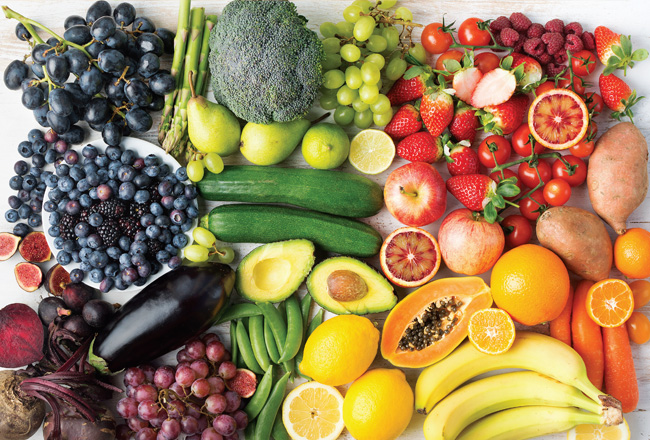DID YOU KNOW?
- The gut microbiome contains trillions of micro-organisms in the intestine and plays a key role in countless bodily functions including the digestion of food, production of vitamins and synthesis of nutrients. In addition, a healthy gut microbiome may support immunity and mood and is important for the management of Parkinson’s disease.
- The gut microbiome may be compromised by illness, highly processed diets, chronic constipation or diarrhea, antibiotic use and chronic stress.
- The gut is connected to the brain via the vagus nerve. What you do for the gut, you do for the brain.
- Stimulating the vagus nerve through relaxation techniques, deep breathing, meditation, laughing or singing can have a positive effect on gut health and digestion.
Nutrition Tips and Tricks
Simple steps to support your MICROBIOME every day
1) Prebiotics/Soluble Fiber
Everyone has their own makeup of micro-organisms known as their microbiome. The best way to support the microbiome is to eat prebiotics and soluble fibers, which feed the good bacteria.
- Vegetables: leeks, garlic, onions, asparagus, chicory okra, mushrooms, radishes, Jerusalem artichokes
- Fruits: strawberries, blueberries, apples, banana, kiwi, nectarines, peaches
- Resistant starches are made by cooking, cooling and reheating rice, beans and potatoes. They may also be found in tapioca, cassava, barley, buckwheat and quinoa. These resistant starches create short chain fatty acids that feed good bacteria and support the gastrointestinal tract.
2) Probiotics: Eat probiotic/fermented foods every day
- Probiotic supplements: look for supplements that include strains of Lactobacillus and Bifido bacterium
- Sourdough bread
- Raw sauerkraut and kimchee
- Apple cider vinegar with “mother:” use in salad dressings
- Kombucha: choose low sugar options
- Look for the words “live and active cultures” when purchasing yogurt/non-dairy yogurt, kefir, cottage cheese and buttermilk
- Choose unsweetened options with no added sugars or sweeteners
3) Stay Hydrated
- Stay hydrated with a minimum of 64 oz of water per day
- Filtered water is optimal, as it reduces the amount of chlorine in the water which can inhibit the growth of good bacteria
4) AVOID Gut Microbiome Busters
- Highly processed foods: cookies, cakes, chips, pretzels, crackers
- White flour, white bread, white pasta
- Excess sugar, high fructose corn syrup, sugary soda, sweets and sugar substitutes
- Chewing gum
- Talk to you doctor about medications and try to avoid excessive antibiotic use
- Stress
REFERENCES
https://ods.od.nih.gov/factsheets/Probiotics-Consumer/
https://www.monash.edu/medicine/translational/gastroenterology/prebiotic/faq
Davani-Davari D, Negahdaripour M, Karimzadeh I, Seifan M, Mohkam M, Masoumi SJ, Berenjian A, Ghasemi Y.
Prebiotics: Definition, Types, Sources, Mechanisms, and Clinical Applications. Foods. 2019 Mar 9;8(3):92. doi: 10.3390/foods8030092. PMID: 30857316; PMCID: PMC6463098.
Ferranti EP, Dunbar SB, Dunlop AL, Corwin EJ. 20 things you didn’t know about the human gut microbiome. J Cardiovasc Nurs. 2014 Nov-Dec;29(6):479-81. doi: 10.1097/JCN.0000000000000166. PMID: 25290618; PMCID: PMC4191858.
